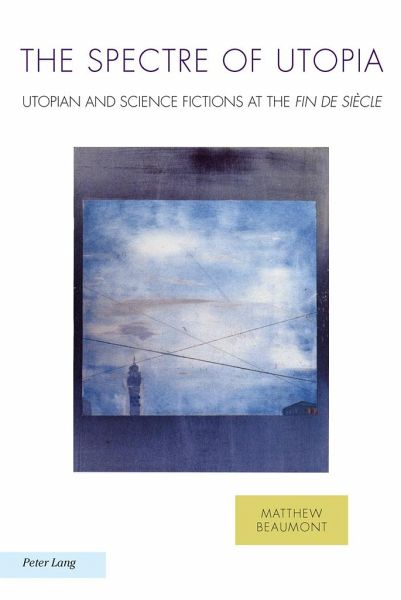«Matthew Beaumont is one of the most brilliant of the younger generation of English critics. His work on late Victorian culture puts him among the most suggestive and original scholars of the period. While focused on Bellamy, this wide-ranging study encompasses a rich variety of authors and intellectual currents, all dealing with the elusive but utterly essential idea of utopia. In its theoretical sophistication and historical depth, Beaumont's work is both innovative and illuminating.» (Terry Eagleton, Distinguished Professor of English at Lancaster University and author of 'Trouble with Strangers' and 'Why Marx Was Right')
«So much has been written about 'Looking Backward' and late nineteenth-century utopian literature that one
wonders if these topics can ever come to us fresh again. Beaumont answers this question by placing Bellamy's utopia within significant yet rarely studied publication and reception contexts, such as the London Bellamy Library books series designed to educate working-class readers, and by presenting utopia as a constructively troubling spectre, a ghost evaluating the readers' present by haunting them with a sense of the absence of a suppressed better world existing somewhere between possibility and impossibility. Thus Beaumont does refresh utopia for us.» (Kenneth Roemer, Piper Professor, University of Texas at Arlington and author of 'The Obsolete Necessity: America in Utopian Writings, 1888-1900' and 'Utopian Audiences')
«This is a rich and provocative book in which Beaumont challenges conventional readings of utopian writing at the turn of the twentieth century. Written with insight and clarity, it provides fresh perspectives and unsettles old certainties. It is essential reading for anyone concerned with the cultural context of the time.» (Ruth Levitas, Professor of Sociology, University of Bristol and author of 'The Concept of Utopia')
«For me the book's two outstanding features are its erudition and cohesion. Beaumont's appropriation of an enormous range of utopian subjects and critique conveys a sense of mastery; he is clearly, consciously and authoritatively joining an on-going conversation. His thesis develops organically; sometimes I felt as though I were reading a very long but impeccably developed essay. This is a remarkable book that I recommend to those whose interest in the fantastic includes utopianism and science fiction.» (Thomas J. Morrissey, Journal of the Fantastic in the Arts 24, 2013/1)
«Beaumont has offered a remarkably detailed and wide-ranging overview of utopian and time travel fiction that is both sophisticated and approachable. It is a fascinating and compelling read, and makes a significant contribution to our understanding of these fictions, at the same time as causing the reader to reflect analytically on his/her own time. [...] 'The Spectre of Utopia' is an exemplar for how to situate influential texts within the social, cultural and political context of the time of their production: it is a triumph of research, insight and clarity of writing.» (Linda Dryden, Review of English Studies 64, 2013/267)
«In diesem Buch vereinigt sich ideenreiche, sensible Textanalyse mit fundierter, klarsichtiger kulturhistorischer Darstellung. In der Fülle der Literatur zu Utopie und Science Fiction ist dies eine erfrischende Lektüre, die neue Perspektiven eröffnet und zur weiteren Auseinandersetzung anregt.» (Arno Löffler, Inklings-Jahrbuch 31, 2013)
«Limpid writing, sharp argumentation, and careful historicism characterize the essays collected in Matthew Beaumont's 'The Spectre of Utopia: Utopian and Science Fictions at the Fin de Siècle'» (Mark Allison, Victorian Studies 57.1, 2014)














